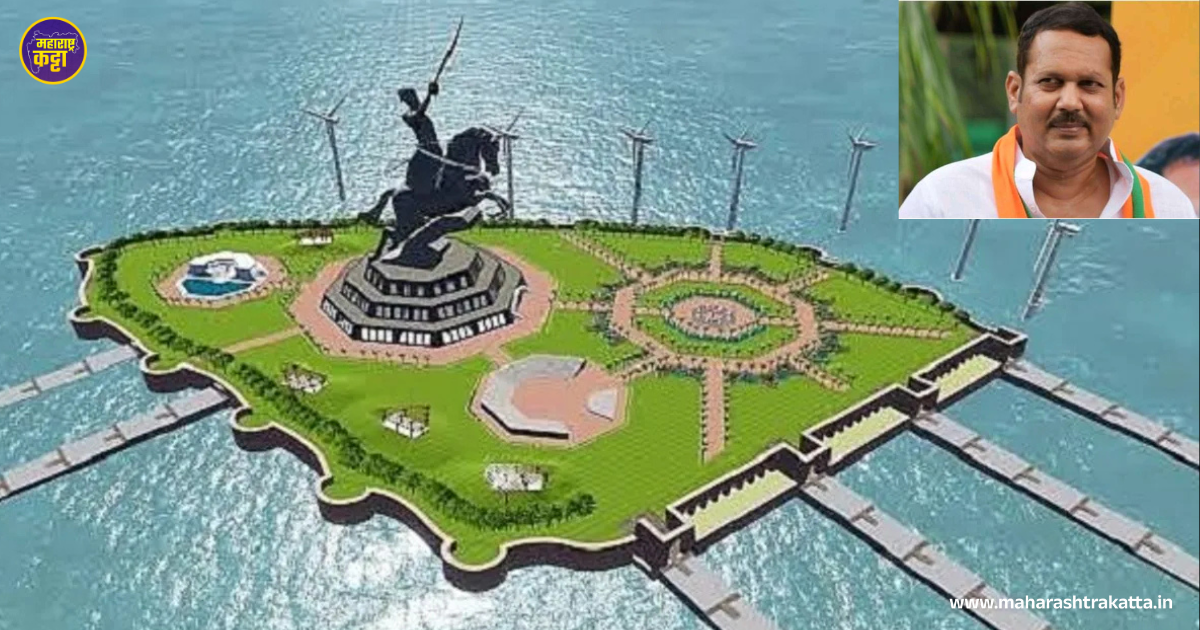Shivaji Maharaj Memorial at Raj Bhavan Demanded by Udayanraje
Chhatrapati Shivaji Maharaj remains an immortal icon of Indian valor, statesmanship, and visionary leadership. Revered across Maharashtra and India, his legacy has inspired countless generations. One of the most ambitious projects to honor him — the Shivaji Memorial in the Arabian Sea — was announced years ago, yet its actualization remains elusive. Recently, BJP MP and Chhatrapati descendant Udayanraje Bhosale made a powerful statement, suggesting a new and symbolic location for the memorial: Raj Bhavan in Mumbai.

This demand has reignited the discussion on honoring Shivaji Maharaj appropriately, and also sparked important conversations about priorities, space utilization, and reverence toward historical icons.
The Long-Delayed Arabian Sea Memorial
The original idea of building a grand memorial of Shivaji Maharaj in the Arabian Sea near Mumbai was met with immense public support and political will. Conceptualized as a towering statue and cultural center on a manmade island, the project received approvals and initial funding years ago. However, due to environmental concerns, administrative delays, and shifting priorities, the project has been repeatedly stalled. Opposition leaders have consistently questioned the government on this delay, demanding transparency and accountability.
Amid this backdrop, Udayanraje Bhosale’s demand throws a spotlight on the issue once again — but with a fresh alternative.
“How Much Space Does a Governor Need?”
At a recent event, Udayanraje asked a blunt and rhetorical question: “How much space does a Governor need?” Referring to the 48 acres of land currently occupied by the Governor’s residence (Raj Bhavan) in Mumbai, he proposed that if the sea memorial faces too many hurdles, then the government should consider constructing Shivaji Maharaj’s memorial within Raj Bhavan itself.
This suggestion challenges traditional notions of how state-owned land is utilized. Raj Bhavan is a prime property in Mumbai, historically and administratively significant. But Bhosale’s argument is simple — if a true national hero like Shivaji Maharaj cannot get a timely memorial at sea, why not make room where there’s already land?
A National Memorial in Delhi?
Beyond the Raj Bhavan proposal, Bhosale also emphasized the need for a national memorial in Delhi for Shivaji Maharaj. As one of the greatest military and administrative minds in Indian history, he argued, Shivaji deserves recognition at the national level, not just regional reverence. Such a memorial in the capital would symbolize his all-India legacy and place him alongside other national icons.
Demand for Legal Protection Against Disrespect
Udayanraje also addressed an increasing concern: the repeated disrespect shown toward Shivaji Maharaj in public and political discourse. He demanded that the central government enact a law that makes such disrespect punishable. This demand was made formally through a representation to Union Home Minister Amit Shah.
According to Bhosale, the law should ensure that if anyone insults great national figures like Shivaji Maharaj, they should face strict consequences. In a country where historical figures hold deep cultural significance, this law, he argues, would serve as both protection and deterrence.
Tribute to Jyotiba Phule and Social Reformers
On the occasion of Jyotiba Phule Jayanti, Udayanraje paid tribute to the great reformer and drew connections between Shivaji’s vision and Phule’s mission. He said Shivaji was among the earliest leaders to show concern for social justice, and Phule carried that legacy forward with education and social reform.
He praised Phule as a visionary who used his resources not for personal gain but for societal upliftment. Udayanraje also acknowledged the role of other reformers and leaders, like Maharaja Pratapsingh, who established schools for women and laid the groundwork for a more inclusive society.
Dinanath Mangeshkar Hospital Incident
In another forceful statement, Bhosale commented on the tragic death of a pregnant woman at Dinanath Mangeshkar Hospital in Pune. Calling it an instance of “unforgivable negligence,” he questioned the hospital’s accountability and charitable contributions. He demanded an audit of the hospital’s operations and went further to say that the government should take over the hospital if found lacking in its responsibilities.
This stand shows Bhosale’s broader commitment to justice and public welfare, beyond cultural issues.
The Controversy of Waghya the Dog’s Memorial
One of the more emotionally charged parts of his speech concerned the memorial of Waghya, the dog believed to have loyally died at Shivaji’s funeral pyre. While many regard Waghya as a symbol of loyalty, Bhosale took a firm stand against having a memorial for a dog at Raigad Fort, where Shivaji Maharaj’s own samadhi (final resting place) stands.
He said the funds were meant for Shivaji’s memorial alone and demanded the immediate removal of Waghya’s tomb. “Strike down the dog’s memorial, focus on Shivaji’s,” he stated emphatically.
Call for Publication and Historical Representation
Udayanraje also pointed out that the government has yet to officially publish a comprehensive historical volume on Shivaji Maharaj. He suggested that this be done urgently under state patronage, ensuring accuracy and respect.
Additionally, he urged that at least one historian be appointed to the Central Board of Film Certification (Censor Board) to ensure that films depicting historical figures do so with accuracy and dignity.
What This Means for Maharashtra and India
Udayanraje’s statements are not just passionate outbursts; they are deeply rooted in a sense of responsibility toward history, justice, and public memory. His proposal to relocate or supplement the Shivaji memorial at Raj Bhavan isn’t just symbolic — it’s practical, timely, and bold.
By addressing multiple issues — from cultural disrespect and legal protection, to healthcare negligence and historical misrepresentation — he’s positioning himself as a voice for both legacy and modern accountability.















Post Comment